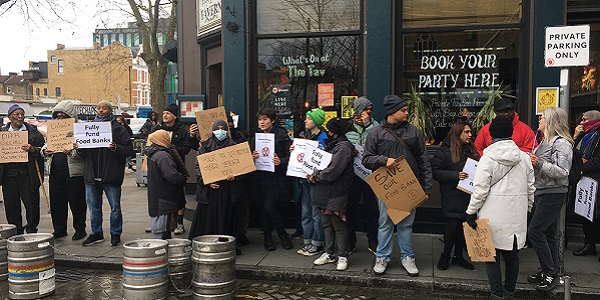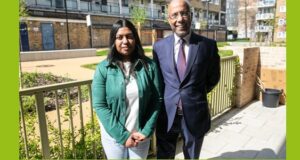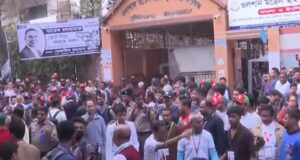“I WOULD love to go to a Food Bank.” There were the words of a Tory Government Minister, speaking on the radio a couple of years ago. “All that free food. People are really lucky and they don’t appreciate it.”
Fortunately, we don’t have to put up with the ignorance and prejudice of Tory ministers any longer – but that should not stop us from questioning whether Food Banks are the best way of helping the poor.
In case anyone else is as misinformed as that Tory minister, let’s start by saying that Food Banks are not free supermarkets open to the feckless public. Most food banks, particularly those run by national charities, require service users to be referred by a social worker, GP or similar. Users are often restricted to a maximum of one referral every three months.
Most of them operate on an emergency basis, provding clients with one bag of emergency supplies designed to feed you (and your family) for three days. Food Banks are often culturally aware, offering a choice of staple: you can ask for a bag with rice or pasta. Otherwise it’s a set of tins designed to keep you alive on an emergency basis. There is seldom any fresh food.
Some local food banks are able to be a bit more flexible. Their work is supported by other charity and community initiatives. There are community shops which require you to pay a small membership fee which then allows you to obtain food which is free or low priced (in Tower Hamlets, these are known as FOOD Stores. Some charities and community projects offer hot meals. Some Food Bank-style services are targetted at a particular audience, such as families with children at school. In Tower Hamlets, the Council funds a number of luncheon clubs for older residents – and the Mayor confirmed at the last Cabinet meeting that more are on the way.
What do these services have in common?
•First, most of them are financed by public money as well as charitable donations. Mayor Lutfur Rahman has channelled funds to Food Banks and FOOD Stores, as do many other Councils. At a time when subsidy should be going direct into people’s pockets, a chunk of it is being spent on administration of these services. Some Food banks use a quarter of the money they raise to fund staff to run the service.
•Second, it’s not just the money that people need – they also need the dignity of choice. In the 1980s, supporters collected food to donate to the striking miners. Heartfelt messages of thanks came back from mining villages. After a while the thanks were accompanied by messages saying, “we have enough baked beans for the moment.” It’s the same challenge today: how do you give poor people some of the choice that other people have?
The Tory Government dealt with the cost of living crisis by setting up a Household Support Fund. It was paid to Councils, which could choose how best to spend the money. This autumn the current Labour Government extended that Fund for six months, allowing Councils to continue to support the poor. And now the question is: how should the funds be spent?
Should the Council continue funding food banks and community shops – which, we now know, use a chunk of that funding to employ people to run the schemes? Or should the Council be channeling funds direct to those who need it – the poor, the low paid and those on welfare benefits?
These direct payments restore choice to those receiving them. They also allow the funders – in this case, Tower Hamlets Council – to target funds to those whose need is sudden and exceptional. Consider the case of victims of domestic violence, for example. The Council funds emergency refuges and gets victims, especially those with children, into stable accommodation as quickly as possible. Should the Council not allow itself the flexibility to throw in some payment to help with food? Amid the upheaval that any escape from domestic violence will cause, is it good enough to send a woman to weekly Food Banks, or would a voucher which can be cashed at a Post Office be a better support?
Our question is: what will Tower Hamlets’ Executive Mayor decide to do with the extended hardship funds? How will they be spent to alleviate hardship? Mayor Rahman, it’s over to you.
●Read more about it:
More stories about local politics
 East London News A Force for the community…
East London News A Force for the community…




